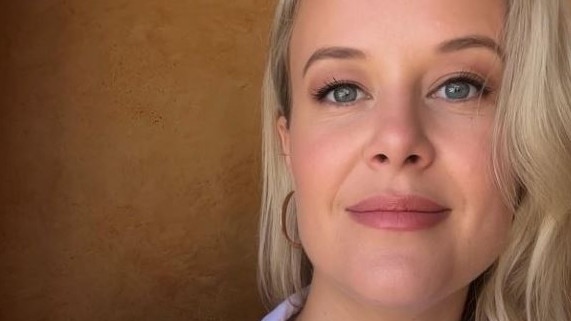Jana Hocking reveals how dating apps harm our mental health and finances
They started as a cute matchmaking tool – but a seriously warped side to dating apps has now emerged, says Jana Hocking.
Dating
Don't miss out on the headlines from Dating. Followed categories will be added to My News.
Picture this: it’s a Monday night and I find myself in a room full of experts all nodding along to a dating theory I’ve not-so-secretly harboured for a long time.
That dating apps have taken a turn to the dark side, wreaking havoc on both our mental health and bank balances.
Oh, I can’t tell you the validation I felt as I furiously lapped up everything I was hearing.
So how did I end up there? Well, yours truly got invited to be on SBS’s Insights program – a show that takes a deep dive into meaty topics each week. This week, it was all about The Dating Gamble – are the dating apps worth it?
Spoiler alert: No. No, they are not.
The guest list was a fabulous mixed bag of tricks: a couple who found love amid the swipes, others endlessly swiping with no luck, a finance guru investing in dating app stocks, a researcher dissecting how these apps have evolved and a psychologist witnessing first-hand their toll on our sanity.
And then there was me – your single gal in her 30s who is continually perplexed by the dating app circus. Needless to say, it made for a conversation that was juicy and, dare I say, a bit shocking.
The episode dared to ask: Is swiping for love online really worth the gamble? Spoiler alert: No, no it’s not.


What started as a cute matchmaking tool has morphed into a multimillion-dollar industry. Forget Cupid’s gentle nudges – it’s now all about companies dangling false hopes while draining our wallets.
Here are some eyebrow-raising takeaways from the show: It’s designed to be addictive.
Remember when dating apps were straightforward? Upload a pic, write a witty bio, and swipe to your heart’s content. Now, logging in means dodging ads, battling bright colours, wading through ridiculous quizzes and fending off constant subscription prompts.
Experts on the show argued these platforms are deliberately addictive.
Anastasia Hronis, a psychologist from the University of Technology Sydney, revealed her studies showed dating apps triggering the same dopamine rush as gambling.
“Just the thought of checking for matches can set off a dopamine hit,” she explained.
“It’s like the anticipation of a win, rather than the win itself, that keeps us hooked.
“One factor that makes poker machines addictive is the rate at which they can be played. When we relate that to dating apps, we can very quickly swipe through profiles and we can do it anywhere at any time.”

Investment analyst Angus Donohoo, who knows the online dating industry better than most, having invested in them himself, likened it to scratching a lottery ticket – always wondering if the next swipe might reveal a jackpot match. He believes apps are more interested in keeping us swiping than actually finding The One.
And the stats don’t lie either: the top 1 per cent of women get more likes than they know what to do with, while the bottom 50 per cent of men barely register a blip. It’s a grim divide, with only a fraction willing to grab their credit card for app extras.
And then there is the gender divide, with fellow guest Lisa Portolan, who did her PhD on online dating and dating apps, revealing that there are more men on Tinder and Ashley Madison (insert giant eye roll here), as opposed to more women on Bumble.
In a nutshell, I think it’s safe to say Tinder and Ashley Madison scream “hook-up culture”, while Bumble seems a tad more “let’s actually date”. No wonder Lisa revealed that only an estimated 40 per cent of the 3 million Aussies on these apps manage to meet someone worthwhile.
The episode was packed with facts that left me looking like that emoji with the brain explosion, you know, that one. And I highly recommend giving it a watch. But one thing’s for sure: Cupid checked out of these apps a long time ago.
A friend texted me mid-episode, saying: “Holy hell, maybe I’ll just stay married”, and I honestly can’t blame her – it’s a jungle out there for us single folk.
The one thing that gave me comfort from filming with a room full of people sharing their stories and findings was that we are all in the same boat. Sure, it’s a bit rocky and it’s got a hole in it. But we’re all finding it a bit tricky to navigate the online dating scene now.
So stay strong, my fellow singletons, stay strong.
Jana Hocking is a columnist and collector of kind-of-boyfriends | @jana_hocking
Originally published as Jana Hocking reveals how dating apps harm our mental health and finances





